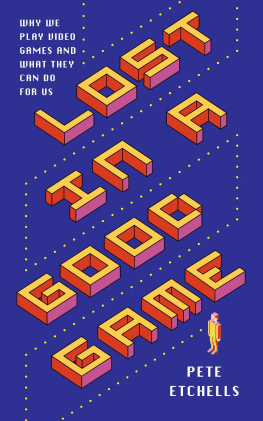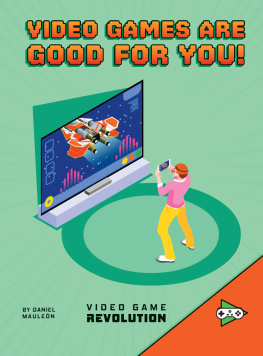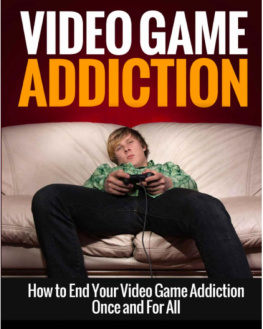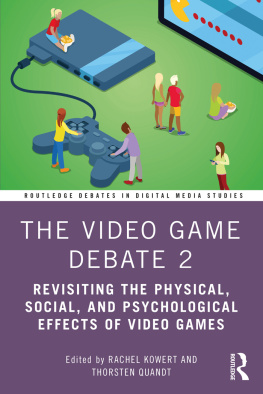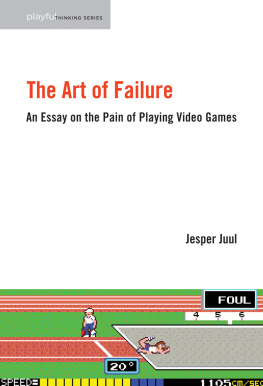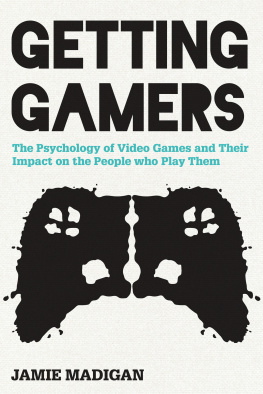I n your pocket, in your bag, on your desk, there is a window onto the entirety of human knowledge and understanding. For the vast majority of us, screens are now an inseparable part of everyday life. They connect us to our friends and family and bring us together with strangers. They are our work, our play an inspiration and a source of distraction. And yet, despite their ubiquity, despite their familiarity, for many people screens are something to be wary even scared of. There are some scientists and intellectuals who will go so far as to say that screens are changing the way our brains work (which is true), and that this is a bad thing (which is false).
Using screens does change the way our brains work, but this is not an interesting point to make, because everything that you do changes your brain. Reading these words, right now whether on a screen or on a page is modifying the way that neurons connect to each other inside your head. Thats what happens every time we learn new things, make new memories, and remember old ones. The interesting question is: how do things change your brain? And, as far as the fledgling science of screens is concerned, the answer is complex, nuanced and woefully incomplete.
Nevertheless, spending lots of time parked in front of a computer or smartphone doesnt seem to feel right on an almost instinctual level. This dissonance, between what we feel from past experience, and what we know from current scientific research, might go some way towards explaining the culture war that is currently being waged against screens in general, and video games in particular.
Heres an example of what I mean. If I ask you to think of a stereotypical gamer, who comes to mind? The chances are that youll conjure up an image of a lone teenage boy with skin so pale its near-translucent, bathed in the blue-white glow of a computer monitor in a darkened bedroom, playing a shooter game something like Call of Duty, or Fortnite, or Overwatch. And something about that scenario feels unhealthy and unnatural. If you have that image in mind, and someone comes along and announces that we should be encouraging kids to go and play outside more, mere common sense dictates that it would be silly for us to argue against such a position.
What little scientific evidence is available so far seems to suggest that it isnt a zero-sum game, though less time spent outdoors doesnt simply correlate with more time spent playing video games. And on top of that, this is a false dichotomy, balanced precariously on a poor understanding of who actually plays video games. It turns out that the demographics of gamers plays counter to our common (mis)conceptions. According to the Interactive Software Federation of Europe, across all age groups there are approximately equal numbers of men and women playing games. And perhaps more surprisingly, adults aged 45 and up are more likely to play than children aged six to fourteen.
There is an unspoken assumption here, of course: that while playing outdoors is a wholesome and healthy activity, playing video games is at best a meaningless waste of time, and at worst an unprecedented health risk. But the reality of the situation is far more complex. Video games are a creative medium, and they offer us unparalleled opportunities for exploring what it means to be human. Certainly, there is potential for them to be misused and abused. But they also offer us new ways to explore the world around us, our thoughts and feelings, our demons and aspirations. And of course, playing outside isnt without its own risk, be it from air pollution, traffic on our roads, or ever-increasing concerns about stranger danger. The rose-tinted view that it is wholesome and healthy often seems to spring from a rather privileged assumption that outside means in the countryside.
There are many different ways to understand video games. One of them is by looking at why we play. What is it that makes some of us want to spend time in those worlds? Different people play different games for different reasons. This is a book that will uncover those reasons and consider the effects that they have on us: as a society, as well as at a personal level.
But I also want to take a grander view of the history of games and look at their relationship with science. Video games were, of course, a product of scientific development; but now they themselves are starting to feed that very development. Science and gaming are locked together in a symbiotic relationship. Through examining that symbiosis I want to uncover a natural history of video games a sense of where they came from, and how they have changed over the years.
Though Ill try to maintain objectivity certainly as far as the scientific research into the effects of gaming on the human brain go I ought to come clean and say that my own engagement in this field began for personal reasons. As far as my own relationship with video games goes, the story is a complicated one.
And, like many things, it starts with an end.
T heres a landscape, not all that far away from here, that over the years I have come to know in intimate detail. Its a frigid, desolate place where snow-crusted mountaintops give way to ravines scattered with pockets of hardened civilisation. To the east of where Im camping, the sharp, rocky heads of a mountain range climb towards a purple and stormy sky. Far below, I can just about make out a frozen stretch of water, lined by trees that look, from this distance, like cake decorations dusted with icing sugar. I stare off into the fog. Im in a dangerous place, but its one that I have come to associate with a certain serenity. Its peaceful here. Quiet.
Im waiting for dragons.
Back in my room, I pulled my legs up onto the chair, and reached for a mug of coffee as a lightning storm played out in the distance on the screen in front of me. The mug had been empty for several hours now, and I was left with only a drying brown halo of silt at the bottom. It was late, and I was tired, but I couldnt sleep. I was in the first year of my PhD, but it wasnt work that was bothering me. Today was an anniversary. I blinked as I carefully studied the screen.
No dragons yet.
It wasnt just any dragon I was looking for. This particular one lived up to its epithet. The Time-Lost Proto Drake. What a name! In my mind, it evoked an image of an ancient monstrosity with vast wings of torn and mouldering yellow leather. But the name carried a double meaning it was also one of the last week. It was somewhere in this snowy landscape, an area called the Storm Peaks, and I was hoping I would be one of the lucky ones. It didnt look like it was going to turn out that way though this time around Id been sitting there for over an hour, and so far, nothing.
In a way, I didnt really care whether I actually saw the damn thing or not. This was all about distraction. I was imagining what it would be really like, sheltering on that ledge at the top of this rich fantasy world, watching other players fly by on gryphons, wyverns, and levitating mechanical heads. Trying to imagine what the dramatic storms overhead would actually sound like, feel like. Smell like. Some people get lost in a good book. I get lost in a good game. A message popped up in the chat window in the bottom corner of the screen. It was Dave, the leader of the small guild of which I was a member.
Seen it yet?
Not a chance, I replied. Not really looking though. His response flashed up after a moment. Wanna do a dungeon instead? An invite to join a group popped up on my screen, and a few minutes later, we were off on an adventure someplace else to take down a monster and grab some loot. The Time-Lost Proto Drake would have to wait for another day.
World of Warcraft

